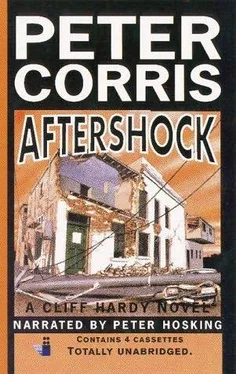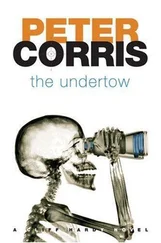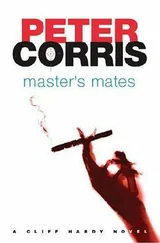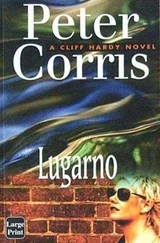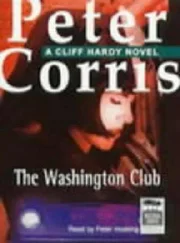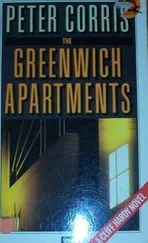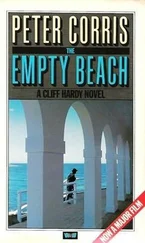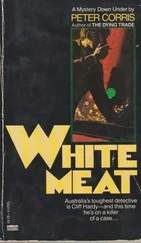Peter Corris - Aftershock
Здесь есть возможность читать онлайн «Peter Corris - Aftershock» весь текст электронной книги совершенно бесплатно (целиком полную версию без сокращений). В некоторых случаях можно слушать аудио, скачать через торрент в формате fb2 и присутствует краткое содержание. Жанр: Криминальный детектив, на английском языке. Описание произведения, (предисловие) а так же отзывы посетителей доступны на портале библиотеки ЛибКат.
- Название:Aftershock
- Автор:
- Жанр:
- Год:неизвестен
- ISBN:нет данных
- Рейтинг книги:4 / 5. Голосов: 1
-
Избранное:Добавить в избранное
- Отзывы:
-
Ваша оценка:
- 80
- 1
- 2
- 3
- 4
- 5
Aftershock: краткое содержание, описание и аннотация
Предлагаем к чтению аннотацию, описание, краткое содержание или предисловие (зависит от того, что написал сам автор книги «Aftershock»). Если вы не нашли необходимую информацию о книге — напишите в комментариях, мы постараемся отыскать её.
Aftershock — читать онлайн бесплатно полную книгу (весь текст) целиком
Ниже представлен текст книги, разбитый по страницам. Система сохранения места последней прочитанной страницы, позволяет с удобством читать онлайн бесплатно книгу «Aftershock», без необходимости каждый раз заново искать на чём Вы остановились. Поставьте закладку, и сможете в любой момент перейти на страницу, на которой закончили чтение.
Интервал:
Закладка:
My work lately, before the present extremely dry spell, had consisted mainly of bodyguarding, interviewing witnesses to motor accidents and locating defaulters on maintenance payments. It was nice to have a case on hand with some corners and blind alleys. By the time I reached Glebe I’d succeeded in putting the past out of my mind and focussing on the future. I had a drink in the Toxteth and agreed that Balmain weren’t travelling too well. My drinking companion was Carl, who used to be called the Prince of the Anarchists before his heart attack. He was fifty-five and looked seventy.
‘Light beer’s tasting stronger and old sheilas are looking younger,’ Carl said.
Even that couldn’t depress me. I shopped for the usual things and let myself into the house prepared for the brief, supercilious company of the cat. I’d feed it and myself out of tins and virtuously read over the photocopies and review the Jacobs case. The phone was ringing insistently when I entered the house. I hadn’t switched on the answering machine. That piece of carelessness threatened my good temper. I dumped the plastic bags on the floor and grabbed the phone.
‘Cliff Hardy’
‘Mr Hardy. My name is Ralph Jacobs. I’m Horace Jacobs’ son and I’d very much like to have a talk with you.’
The voice was smooth and calm, well used to phrases such as ‘very much like’. He didn’t sound a bit like his old man. ‘I’m not sure, Mr Jacobs,’ I said. ‘What would you like to talk about?’
‘I think you know that.’
‘I’m certainly not going to discuss a client’s business over the phone.’
A note of impatience crept in. ‘Fair enough. I understand you’re meeting Dad in Hamilton tomorrow?’
I didn’t say anything, but I liked ‘Dad’ better than ‘my father’.
‘I rang him this afternoon and he told me, you see. He’s not a well man, Mr Hardy. I really think we should have a talk before you take this any further.’
If Horrie Jacobs had told his son about our meeting, that let me off the hook. Maybe Ralph could give me something useful. I told him I was driving up to Newcastle in the morning but that I could let him have half an hour beforehand.
‘When?’ he said.
‘Nine o’clock, in Darlinghurst.’ I gave him the address.
‘I have to come in from French’s Forest.’
‘Nice early start for you, Mr Jacobs. See you at nine.’
I poured a small scotch, flooded it with soda water, told myself that it was infantile to want to put something in my mouth, set fire to it and give myself lung cancer, and sat down with the earthquake clippings. It was almost as if the papers had followed an even-handed policy-the accounts of people crushed, trapped and buried were balanced out with stories of near misses, miraculous escapes and heroism. For Australia, it was a major disaster. The Workers’ Club on the corner of King and Union Streets had folded like a card house; several floors had collapsed down into the car park. Nine dead, dozens injured. Photographs showed Beaumont Street, Hamilton, looking like a war zone. Buildings had fallen as if they had been bombed; three people had died when shop awnings and rubble had fallen on them. Many more had been injured.
In the case of the Workers’ Club there looked to be a fair degree of human error. The building wasn’t old, not the part that had suffered most damage. There were questions raised about the suitability of some of the construction methods. There were ifs and buts about the Beaumont Street structures, too. Were the tie-rods supporting the awnings properly anchored? Had renovations and tartings-up weakened the fronts of the buildings? But in Hamilton the main problem appeared to be geological. The area was a flood plain and Beaumont Street itself was an old bed of the Hunter River. Its basic composition was sand, and when the quake struck it shook like jelly on a plate.
The shock had hit buildings sacred and profane-the Workers’ Club, the Newcastle RSL Club, the Kent Hotel, several schools, community centres and churches. Oscar Bach had allegedly died when a section of the wall of the Holy Cross church had fallen on him as he was preparing to treat the church’s foundations with a pest control chemical. There were other casualties away from the centre of destruction, spreading out into the nearby towns and suburbs like aftershocks. A locally renowned musician had died after the evacuation of the hospital where he had undergone an operation; a hospitalised woman whose condition may have been aggravated by the earthquake also died. There were several traffic accidents attributable to the quake. Horrie Jacobs himself could be considered a victim.
I’d experienced a few earth tremors myself- in the Solomon Islands where I’d been investigating an insurance fraud and on the south coast where I’d been holidaying with Cyn in one of our many failed efforts to keep the marriage together. I remembered swaying lights, falling books, spilled drinks and the startled barking of dogs, but nothing like this. For weeks people all over Sydney were inspecting their houses for cracks. We got a lot of heavy rain early in the year and people complained about leaks caused by the tremor. I didn’t. I knew I had leaks before the quake. On December 28 at 10.27 I’d been swimming in the Leichhardt municipal pool and hadn’t felt a thing. I’d written the earthquake off as one of those disasters that hadn’t touched me. But now it had. It couldn’t have been easy for Horrie Jacobs to consult me with his private problem that no-one wanted to hear about. Maybe it wasn’t easy for Helen Broadway to give him my name, to probe at that wound.
It was all very interesting, something to think about while I put the cat out and had another weak scotch. I took the dregs of the drink up to bed along with Larry McMurtry’s Lonesome Dove, sure to take care of my reading needs for at least a month. I finished the drink and read about Cal and Gus and Jake and the pigs until I was sleepy. I put the book down and turned off the light. I knew what would happen. It was an unfailing pattern. I’d sleep for three hours, get up and piss and drink weak instant coffee and read and sleep some more. There’s a line in a Dire Straits song that says it all-’You know it’s evil when you’re livin’ alone.’ Right on, Mark.
4
Ralph Jacobs resembled his father the way a dog resembles a duck. He was well over six feet tall and fleshy. His barbering and tailoring suggested vanity and he had the good manners of a man who has worked at having good manners. I’d beaten him to the office by about five minutes, giving me the moral edge. I had a feeling I was going to need every advantage I could find. I ushered him into the chair his father had sat in and took up my position behind the desk. My manners aren’t so good-I looked at my watch.
‘It’s good of you to see me,’ Ralph said. ‘But I think you’ll find it worthwhile. I won’t beat about the bush, Mr Hardy, my father’s mental state isn’t the best.’
‘Whose, Mr Jacobs?’
‘I’m glad you can see the amusing side of an old man’s deterioration.’
‘I can see the amusing side of someone calling gaga a bloke who struck me as very sharp and well in control of himself. And as a very nice man, too, by the way.’
‘He is a nice man and I’m very fond of him. That’s why I don’t want to see him distressed. And I have my mother to think of, as well.’
‘He didn’t say anything about his wife being sick.’
‘She isn’t.’
‘Then I don’t see your problem. Your father came to me with a matter that I’m equipped to handle
‘For a fee.’
‘Of course. What do you do for a living, Mr Jacobs?’
He looked surprised at the question. ‘I run a chain of sporting goods stores. Also I manage the Chargers.’
Читать дальшеИнтервал:
Закладка:
Похожие книги на «Aftershock»
Представляем Вашему вниманию похожие книги на «Aftershock» списком для выбора. Мы отобрали схожую по названию и смыслу литературу в надежде предоставить читателям больше вариантов отыскать новые, интересные, ещё непрочитанные произведения.
Обсуждение, отзывы о книге «Aftershock» и просто собственные мнения читателей. Оставьте ваши комментарии, напишите, что Вы думаете о произведении, его смысле или главных героях. Укажите что конкретно понравилось, а что нет, и почему Вы так считаете.
